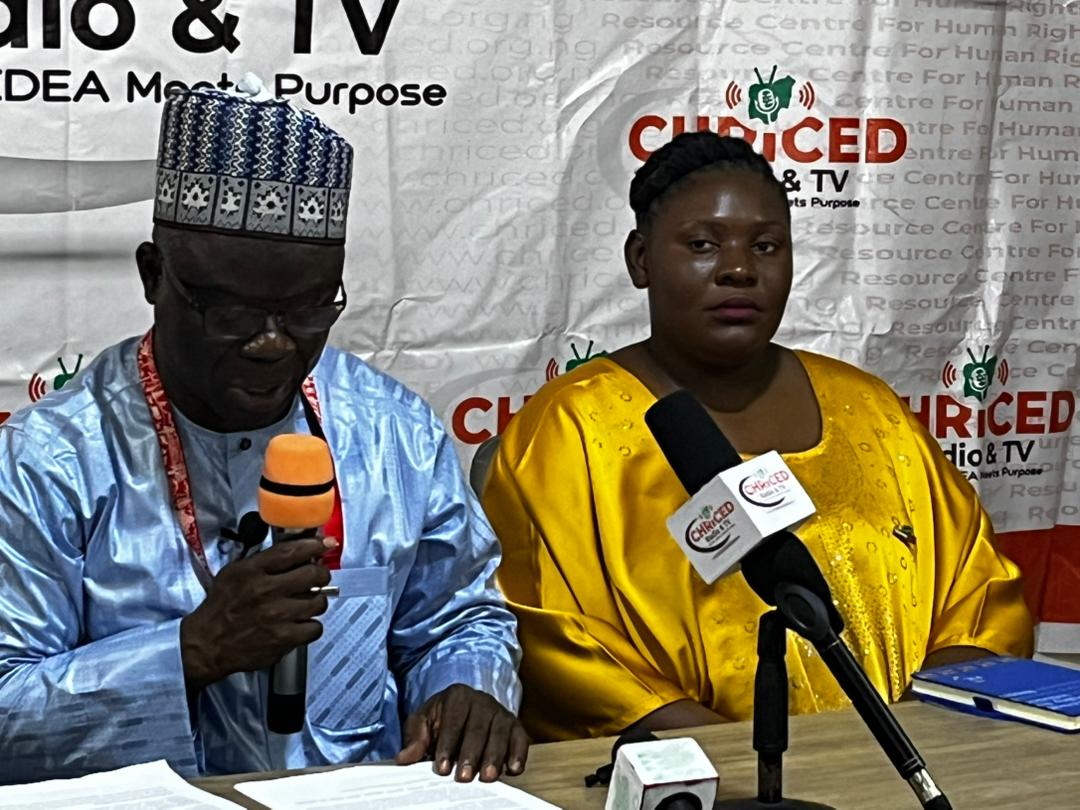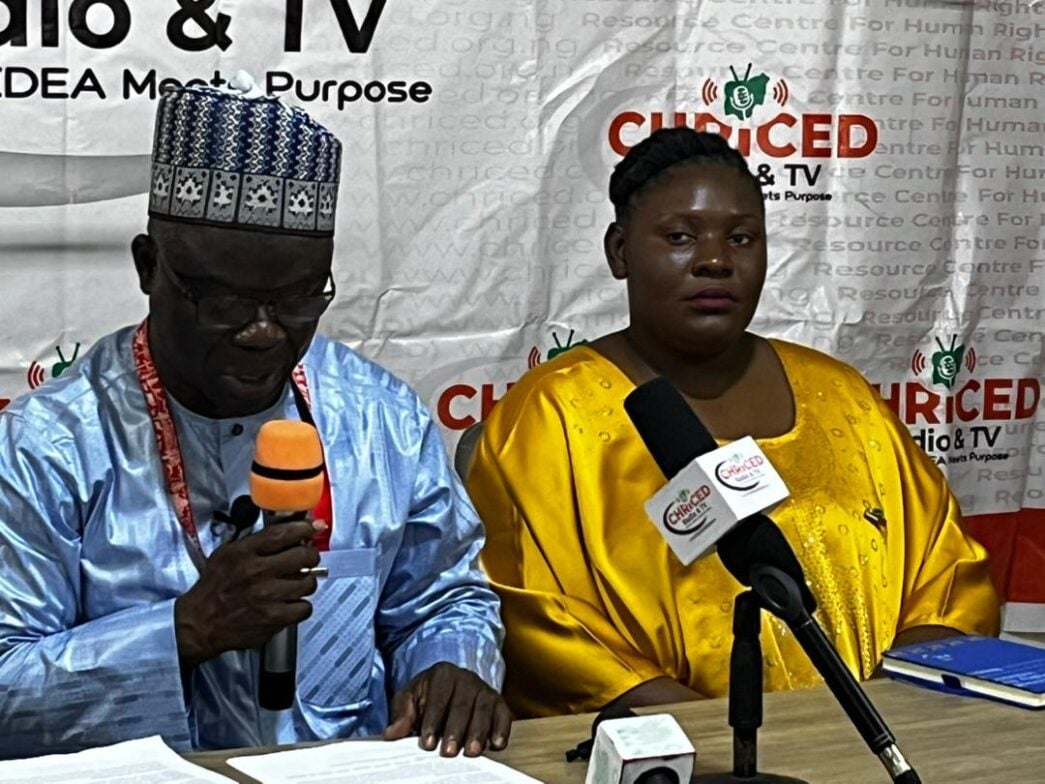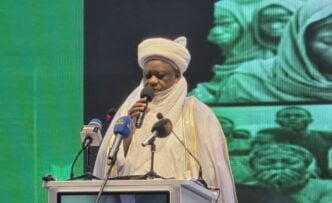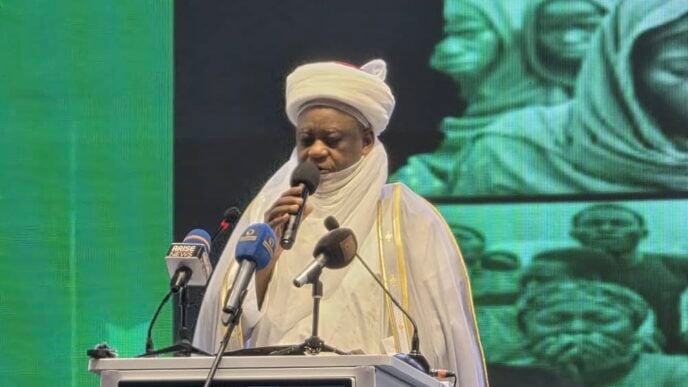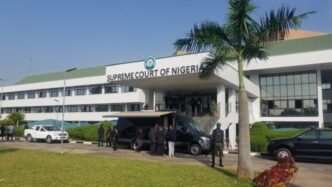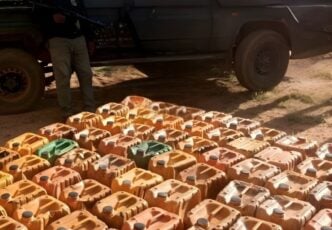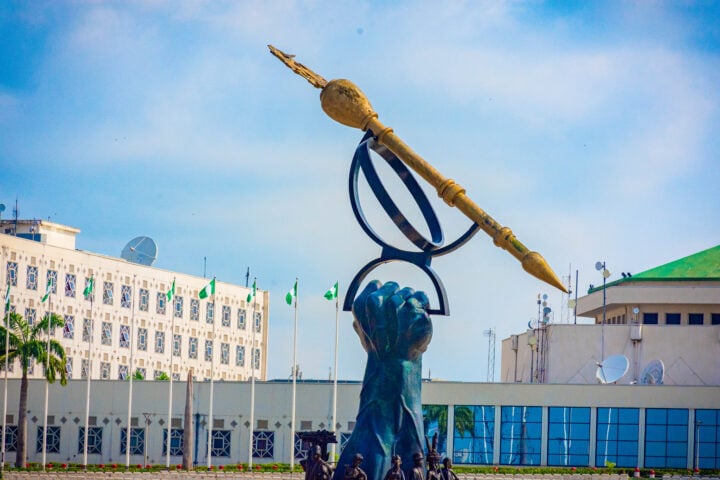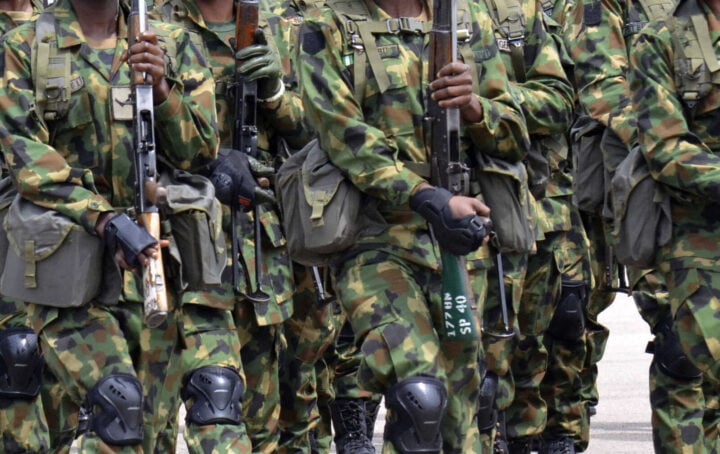The Resource Centre for Human Rights & Civic Education (CHRICED) has accused the government of criminalising civic freedoms.
Speaking at a press conference in Abuja on Thursday, Ibrahim Zikirullahi, CHRICED’s executive director, said peaceful protests are now “treated as acts of rebellion”.
Citing the #EndBadGovernance demonstrations in August 2024, Zikirullahi said security forces allegedly attacked and killed peaceful protesters.
Zikirullahi said the persecution of Omoyele Sowore, publisher of Sahara Reporters, is an example of the government silencing critics.
Advertisement
He warned that “when civic space shrinks, tyranny expands, and when voices are silenced, injustice thrives”.
Zikirullahi said Nigeria is “haemorrhaging politically, economically, and socially” despite official narratives of progress.
The CHRICED’s executive director said Nigeria’s 65th independence anniversary should be a time of sober reflection, not celebration.
Advertisement
“While government propagandists spin tales of reform, stability, and progress, the lived reality for millions is one of repression, poverty, and fear,” Zikirullahi said.
He said 60 years after independence, Nigeria’s founding fathers’ hope for unity, prosperity, and dignity has given way to frustration, as anniversaries now remind citizens of unfulfilled promises and a nation still struggling to define its destiny.
According to him, institutions meant to serve the people have “fallen silent, paralysed by complicity or captured by power”.
“This silence is not peace. It is abandonment. It is betrayal,” he said.
Advertisement
‘DEMOCRACY IN RETREAT’
Zikirullahi accused President Bola Tinubu’s administration of sidelining governance for premature politics.
“Barely two years into President Bola Ahmed Tinubu’s administration, Nigeria’s democratic promise is being eclipsed by political opportunism. Governance has been sidelined in favour of premature electioneering,” he said.
He alleged that the Independent National Electoral Commission (INEC) had failed to enforce the law, while security agencies and governors had targeted the opposition.
Advertisement
“Security agencies have recently clamped down on the PDP and ADC secretariats, preventing them from holding lawful meetings.
“Meanwhile, APC governors in Edo and Benue had issued unconstitutional bans against Peter Obi.”
Advertisement
On women in politics, Zikirullahi pointed to the ordeal of Natasha Akpoti-Uduaghan, the senator representing Kogi central, describing her suspension from the national assembly as “the systemic silencing of dissent—particularly against women and marginalised groups”.
Zikirullahi said the nation’s justice system is barricaded by corruption and political capture.
Advertisement
“Justice in Nigeria is no longer blind; it is barricaded behind walls of influence, delay, and silence,” he said.
He cited the auditor-general’s report on N197 billion lost to fraudulent contracts, lamenting that the courts failed to hold corrupt actors accountable.
Advertisement
On the economy, Zikirullahi highlighted inflation at 20.4 percent, a naira-to-dollar rate of over N1,500 and youth unemployment above 40 percent.
“These numbers reflect a country in economic freefall. Over 130 million Nigerians remain trapped in multidimensional poverty,” he said, adding that corruption worsens hardship.
Zikirullahi also painted a grim picture of insecurity, citing Boko Haram, banditry, kidnappings, and the death of Somtochukwu Christelle Maduagwu as evidence of a collapsing security and policing system.
He highlighted urgent reforms, including halting premature campaigning, implementing the Muhammed Uwais electoral reforms report, cutting the cost of governance through the Oronsaye report, and investigating all corruption allegations “without fear or favour”.
“Silence is complicity. Nigeria cannot afford to drift further into chaos. The time for principled, decisive action is now,” Zikirullahi said.
He said Nigeria “stands at a precipice, and the choices we make today will determine whether we descend into chaos or rise to reclaim our democracy and dignity”.
“Democracy is not a luxury; it is a lifeline. When it dies, tyranny thrives,” Zikirullahi added.
